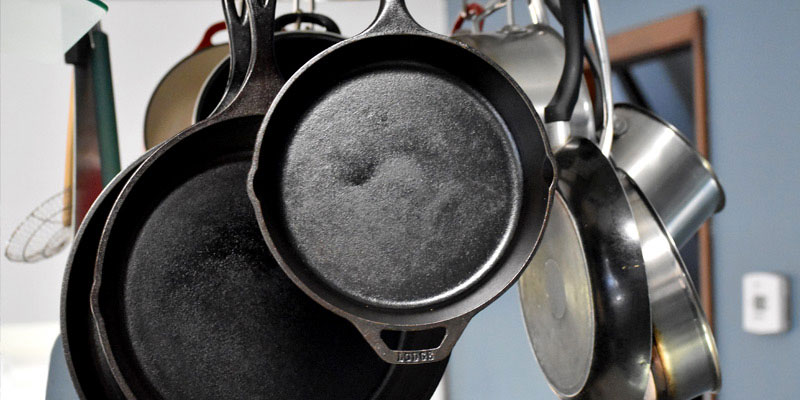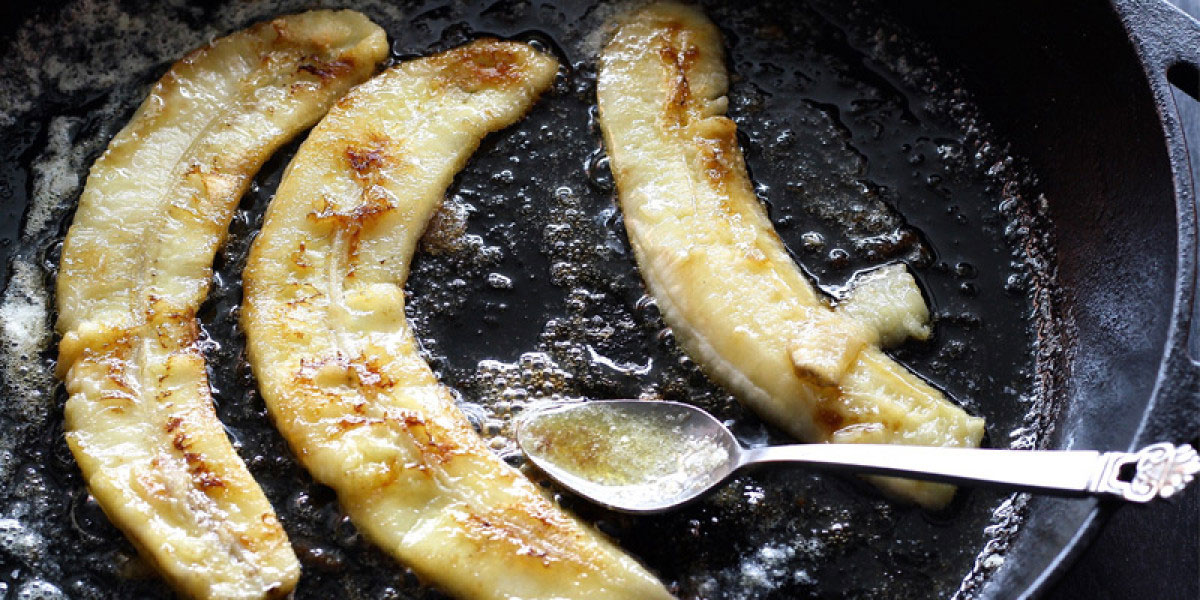Cast-iron cookware: Back to the future?
Cast iron cookware has been in use for centuries now and is recently enjoying a well-deserved attention. There are many reasons for the resurgence of cast iron cookware, the foremost being health reasons. Read on to understand what these benefits are and why your grandma’s old skillet is in trend these days

Cast iron cookware traces its roots back to around 220 AD to the Han Dynasty in China where it was extensively used. Since then, casting techniques became popular in Europe, so much so, that during 18th and 19th centuries cast iron cookware was purported to be worth more than gold.
In the 1700s, the sand casting method was patented by Abraham Darby, which led to the increase in popularity of cast iron cookware across the world. Even today, most cast iron cookware manufacturers use a method that is similar to the one that Darby patented.

Why use cast iron cookware?
Food cooked on these vessels is free from harmful chemicals that get inadvertently absorbed by food cooked on chemical-coated non-stick cookware. Here are some of the top benefits of cast iron cookware:
Naturally non-stick – A correctly seasoned cast iron pot or skillet can be used just as well as any non-stick cookware. Make sure you season your cookware regularly and learn how to care for your pot before using it.
Health benefits – The biggest draw of cast iron cookware is perhaps the health benefits it accords. Small amount of iron is absorbed into the food you cook on a cast-iron skillet, making your food more nutritious. The supplemental iron in your diet helps maintain your energy levels and strengthens your immune system
Easy to clean and maintain – Contrary to popular belief, cast iron pots and pans are easier to maintain than their non-stick counterparts. Once you learn how to season and care for your cast iron pan, you’ll realise how low maintenance and easy to use these pans are.
Cooks food extremely well – Cast iron cookware is preferred by chefs and food enthusiasts because of how evenly the heat spreads in the vessel. Even distribution of heat translates to evenly cooked food, which is tastier and healthier. Cast iron cookware retains heat long after it has been taken off the flame which ensures your food stays warm longer.
Sturdy and lasts forever – Pots and pans made from cast iron are sturdy and long-lasting. In the olden times, one set of cast iron cookware lasted for generations together. It is a well-known fact that the more you use and season your cookware, the better it gets with age.
Versatile – The best part about cast iron cookware is that you can use it both on the stovetop and in the oven, making it easy for you to cook one-pot recipes that call for both heat sources.
Seasoning and care
Seasoning a cast iron pan or skillet is very important both for the quality of cooking and for the long life of your cookware. Seasoning can be done on both new vessels and on old unused cookware that you want to revive. Cast iron cookware is made primarily out of iron, which is susceptible to rusting. Seasoning makes sure your cookware is protected from rusting, and your food does not stick to the vessel when you are cooking.
To season your cast-iron skillet or pan, all you need is some cooking oil. If you look online on how to how to season your cookware, you will be inundated with different methods to use, each more complex than the other. It is not as intimidating as it seems. All you need to do is coat your cookware evenly with any oil and buff it all over. Keep the oil-coated vessel in the oven at 450F for about 30 minutes. The oil will polymerise and form a beautiful non-stick coating on your pan.
If you are seasoning a new pan, repeat these steps three to four times till you see a good layer of seasoning on the pan. Wait for the pan to cool down, and you are all set to use it. It’s as simple as that!
As you use your skillet or pan, a new layer of seasoning gets set every time you use fats for cooking. All you need to do is wipe your pan clean after washing and make sure it is dry when you stow it away after use. Some experts also suggest coating the cookware with oil every time you stow it away.
Get cooking!
Cast iron pans and skillets are a must-have in all kitchens. Not only are they ruggedly good-looking, but they are also very versatile, and you can use them for cooking pretty much anything. From eggs to pies, tortillas to steaks, you can cook anything on your cast iron skillet. If you have a cast-iron family heirloom neglected in some corner of your home, this is the right time to bring it out and let it shine!
